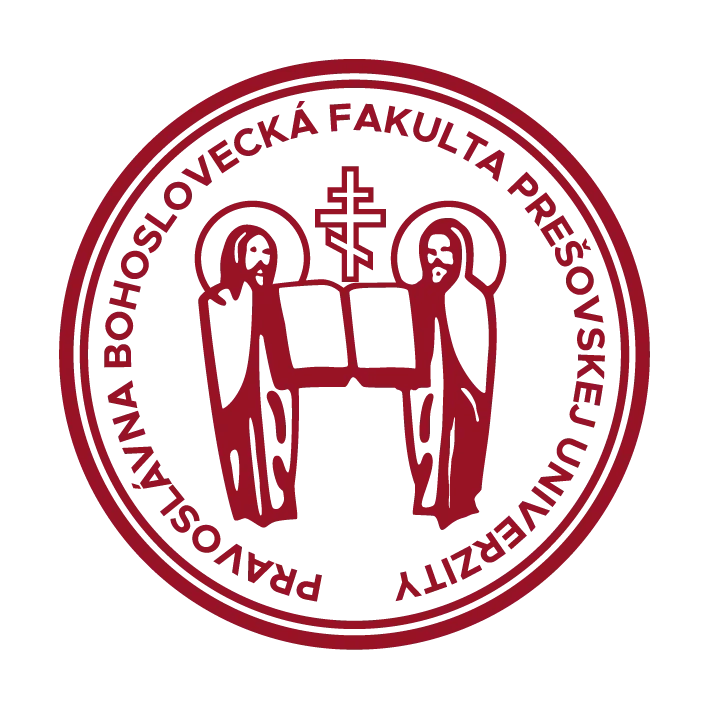ALEKSIEJUK Artur - Acta PATRISTICA, volume 14, issue 28/2023
THE CAUSES AND CONSEQUENCES OF THE ANTHROPOLOGICAL CRISIS ACCORDING TO IVAN VASILYEVICH KIREYEVSKY (1806-1856)
/TOTALITARYZM RACJONALNOŚCI JAKO PRZYCZYNA KRYZYSU ANTROPOLOGICZNEGO W ŚWIETLE ROZWAŻAŃ IWANA KIRIEJEWSKIEGO (1806-1856)/
Artur ALEKSIEJUK
lecturer, Department of Orthodox Dogmatic and Moral Theology, Faculty of Theology, Christian Academy of Theology, 21c Miodowa Street, 00-246 Warsaw, Poland, ks.artur.aleksiejuk@gmail.com, ORCID: 0000-0002-5827-6048
Abstract
Ivan Kirieyevsky (1806-1856) is one of the most important Russian thinkers of the 19th century, considered next to Alexei Khomiakov (1804-1860) as the founder of Slavophilic philosophy. The considerations of this Russian philo-sopher, whose 215th birthday and 165th death anniversary fall this year, focused mainly on historiosophical issues, in particular on the analysis of civilizational and cultural relations between Russia and Europe. Formulating a critical assessment of the present condition of the West, which, in his opinion, was in a state of progressive socio-cultural disintegration, he drew attention to the need to return to the Christian values that underlie European civilization and identity. In the strategy of the spiritual renewal of Europe, he played a special role in Orthodox Russia, where, in his opinion, the original purity of the Christian kerygma, undistorted by soulless rationalism, has been preserved. To this end, Kiriejewski directs the edge of his criticism against total rationalism, which constrains the freedom of the creative human spirit and, instead of cooperating with this spirit in the work of discovering truth, limits the spectrum of its cognition only to material reality. The Russian philosopher warned against the totalitarianism of rationality, on the horizon of which he already saw the specter of an anthropological crisis with its inevitable consequences: enslavement, objectification and instrumentalisation of man. The signs of this crisis are worldview of ontological immanentism, atheism, scientism and moral relati-vism. The article presents the critique of total rationalism formulated by Kirieyevsky as the main cause of the present anthropological and social crisis.
Keywords
Ivan Vasilyevich Kireyevsky, anthropology, anthropological crisis, historio-sophy, Russian philosophy of the 19th century, Slavophilic philosophy
SUMMARY
Wolniewicz's diagnosis above leaves no doubt that Christianity, above all Orthodoxy, has an extremely important role to play. In the field of science and research, it is to strive to deepen anthropological-axiological reflection, drawing on the achievements of both theology and contemporary social and exact sciences. Its task is to work for an alliance between science and faith, a new fusion of the vertical and the horizontal, rather than to perpetuate the naïve superstition of faith in science and the absolutisation of the human ratio. In the context of reflection on the causes of the contemporary social crisis, it is worth taking seriously the aporias pointed out by philosophers, psychologists, pedagogues, sociologists and representatives of other sciences that place the human being at the centre of their interest. It is necessary, however, to try to combine with them what Scripture and Tradition say about man, his freedom, dignity, responsibility, morality and rights. What is needed here, however, is not above all a purely intellectual proficiency in the analysis of written sources, since, according to the Fathers of the Church, this can foster the development of spiritual vanity and pride. What is needed most here is a humility, inner calmness and perseverance, exuded by faith, hope and love, in order to temper one's mind to accept the gift of understanding from God. Orthodoxy has much to say and offer here. "Giving thanks to God, who gives scientists the gift of discovering unknown dimensions of the divine creation" and valuing other methodological endeavours, it thus remains above all open to the inspirations that become available to the researcher through participation in divine energies. It should be emphasised that such an approach does not depreciate the essential value of the human ratio in knowing reality, without which all acquisition and use of knowledge would not be possible. In the Orthodox understanding, however, the meaning of the ratio is not contained in itself. Rather, it is called to go beyond the usual patterns, to transcend boundaries not only horizontally, but above all vertically, towards God. Entering this path of knowledge is directly inflicted on man. Orthodoxy emphasises exceptionally strongly that this becomes possible if man lives a genuinely spiritual life, in the fellowship of the Church, in which, in faith, hope and love, he unites himself with God in the Trinity of the Most Holy Persons.
(Language: poland)
